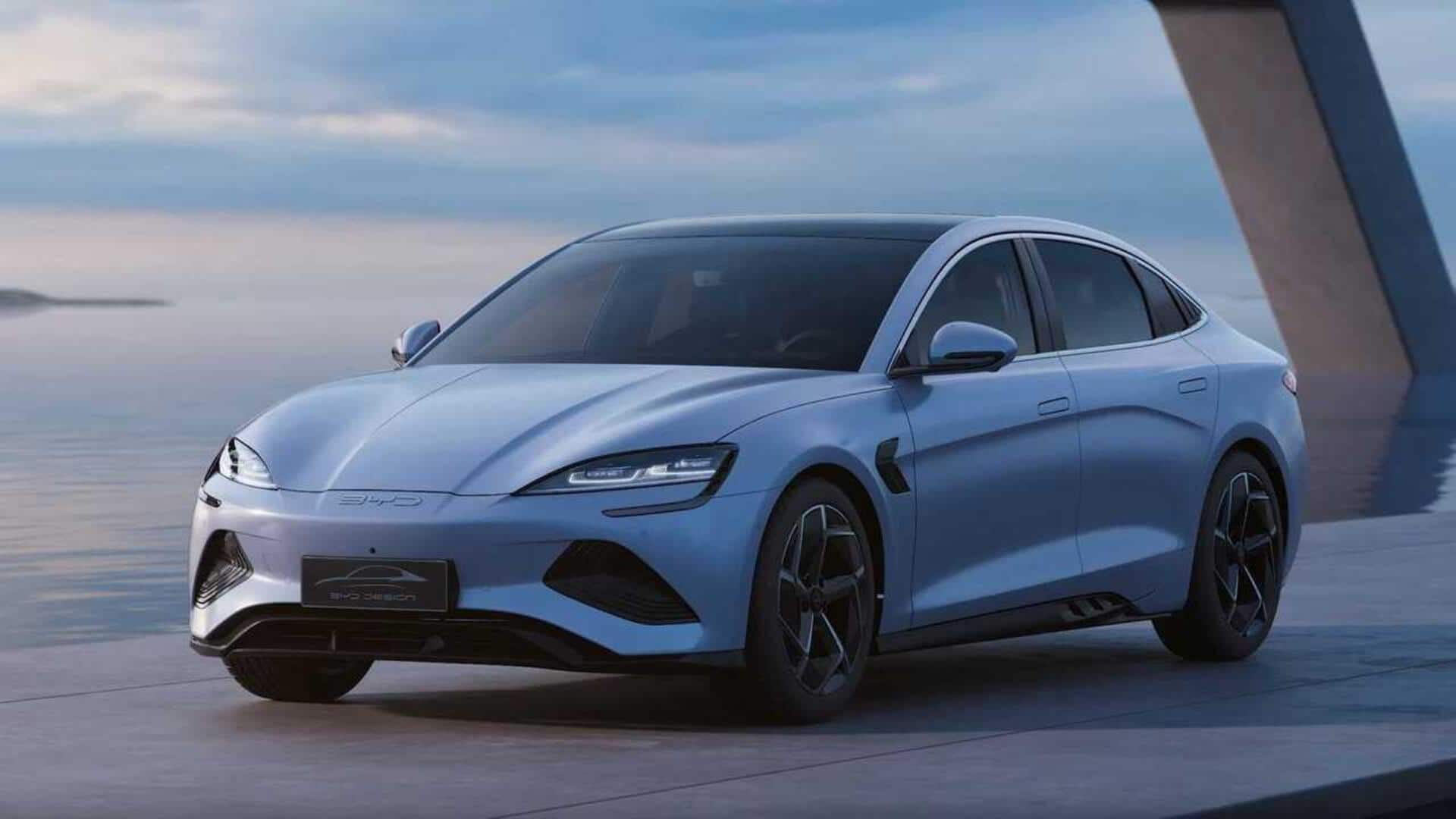
Trade war brewing? EU imposes duties on Chinese EVs
What's the story
The European Union has imposed additional tariffs on Chinese electric vehicles (EVs), ranging from 17.4% to 37.6% for individual manufacturers.
This is over and above the existing 10% duty on all EVs imported from China, potentially escalating the cost of EVs across the EU.
The move is also seen as a significant blow to Beijing, which is already embroiled in a trade war with US.
The new charges are provisional, and are likely to come into effect later this year.
Market shift
Impact on China's EV industry and Western firms
The EU is the largest overseas market for China's EV industry, which relies heavily on high-tech products to boost its struggling economy.
The EU officials attribute the surge in imports to "unfair subsidization," enabling Chinese-made EVs to be sold at significantly lower prices.
This decision also impacts Western firms manufacturing cars in China, as EU aims to rectify what it perceives as a distorted market.
Market growth
Chinese EV market share in EU and tariff details
According to Brussels-based Transport and Environment (T&E), the total number of EVs sold by Chinese brands in the EU rose from 0.4% of the total EV market in 2019 to nearly 8% last year.
The new tariffs were calculated as per estimates of state aid each firm received, with companies cooperating with the probe seeing reduced duties.
The European Commission has set duties on three major Chinese EV brands: SAIC, BYD, and Geely.
Manufacturer's burden
Tariff impact on major Chinese manufacturers
SAIC, a state-owned company that partners with Volkswagen and General Motors, faces the highest new tariff of 37.6%.
BYD, China's largest EV maker, will see an additional duty of 17.4% on vehicles it ships to the EU.
Geely, owner of Sweden's Volvo Cars, will be subjected to an extra tariff of 19.9%.
These tariffs are expected to give certain automakers an advantage in the European market according to research by Dutch bank ING.
Global impact
European and US car makers also affected
European car makers operating factories in China or via joint ventures will also face increased costs to import EVs into the EU.
Those deemed cooperative with the probe will face an extra duty of 20.8%, while non-cooperative ones will pay a higher tariff of 37.6%.
US-based Tesla, the largest exporter of EVs from China to Europe, has requested an individually calculated rate which EU officials said would be determined at the investigation's end.
Strategic shift
Chinese EV firms' response to new tariffs
In response to the new tariffs, some major Chinese EV firms are planning to establish production capacity in the EU to potentially shield themselves from new duties.
BYD's first European factory is already under construction in Hungary, with production expected to start by next year's end.
Similarly, Chinese car maker Chery has recently signed a joint-venture with a Spanish firm for manufacturing EVs and other cars in Barcelona.
SAIC is also seeking a site for its first European factory.
Investment impact
China's investment in EV industry and global dominance
The Chinese government has heavily invested in its EV industry, injecting more than £181 billion of state support into the industry between 2009 and 2023.
As a result, China's EV industry has become a global leader. The International Energy Agency (IEA) reports that China accounted for over 60% of the world's new electric car sales last year.